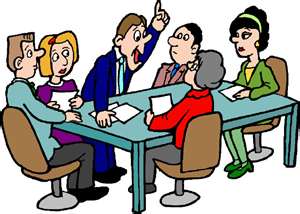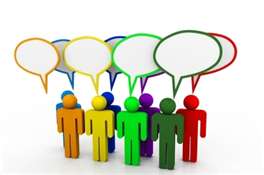 One of the areas I find people have a great deal of confusion about is the idea that the United States is a democracy. The U.S. is a representative republic which I spoke about in a previous post. The issue I want to take on today is the idea that we are slowly becoming a democracy.
One of the areas I find people have a great deal of confusion about is the idea that the United States is a democracy. The U.S. is a representative republic which I spoke about in a previous post. The issue I want to take on today is the idea that we are slowly becoming a democracy.
When the Founding Fathers established the political system of the United States they broke authority into three branches of government. The Federal Convention is where the Founding Fathers gathered to draft the wording for the new constitution. There was much consternation about how the people in these branches would get their jobs. There was also a great deal of concern about how much power should rest in the hands of the federal government but I’ll save that conversation for a future blog. For now I want to talk about how our representatives get their jobs and their duty therein.
The Federal Convention ended with a system, after much debate, where the lower house, The House of Representatives was elected directly by a vote of the people, an upper house, the Senate, appointed by state officials, the executive, the President, who was elected through a mechanism called the Electoral College, and a Judicial, Judges, who were appointed by the executive.
The Senate and House of Representatives make laws, the Executive signs them, and the Judicial determines their meaning in individual cases. The important factor here is that it is Congress (the collective term for the Senate and House of Representatives) makes the laws. The laws are not voted on by the people. The founding fathers did this for a specific reason that I will talk about tomorrow.
Most state governments operate the same way.
Things have changed to a large degree. The main culprit in this change, I think, is the proliferation and immediacy of polling and voter outrage. By this I mean that the people can almost instantly respond to any proposed legislation before it becomes law and organize opposition. Also, with sophisticated polling, the politicians are aware of the will of the people before they cast their vote. This has the effect of pushing politicians in the direction of the majority of the population. Not just in their legislative duties but in their campaign promises and party platforms.

We’ve seen massive vote swings based on popular opinion quite recently with the SOPA act but that is only the tip of the iceberg. Politicians regularly hold focus groups in order to weigh the popularity of a particular plan. They fear getting removed from office if they make decisions that are unpopular with their constituency.
This is not the system envisioned by the Founding Fathers. The original plan was that the representatives made the laws and the people redressed that situation once every two, four, or six years with elections. Even then only the House of Representatives faced direct election by the people. The Senators were appointed and the President elected via the Electoral College. So, the drift towards democracy is something that was not originally planned.
Now, there are quite a few people out there who consider this movement towards democracy a good thing and they have some interesting points. I’ll talk about what this change means for the future of the United States tomorrow.
Stay tuned!
Tom Liberman
Sword and Sorcery fantasy with a Libertarian Twist
Pingback: Democracy – Good or Bad « tomliberman
Pingback: The Will of the People and other Nonsense | Tom Liberman
Pingback: Democracy - Good or Bad - Tom Liberman